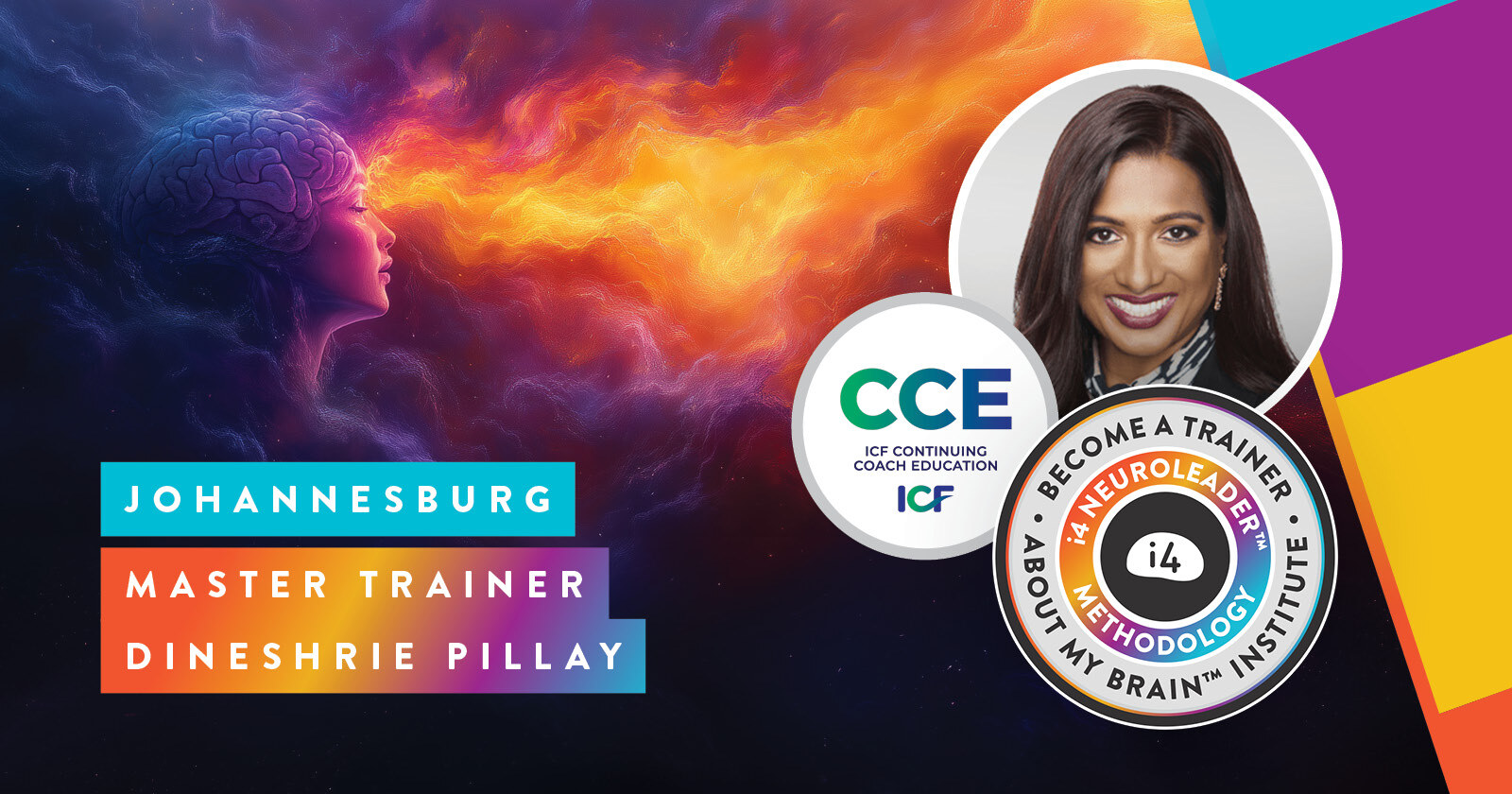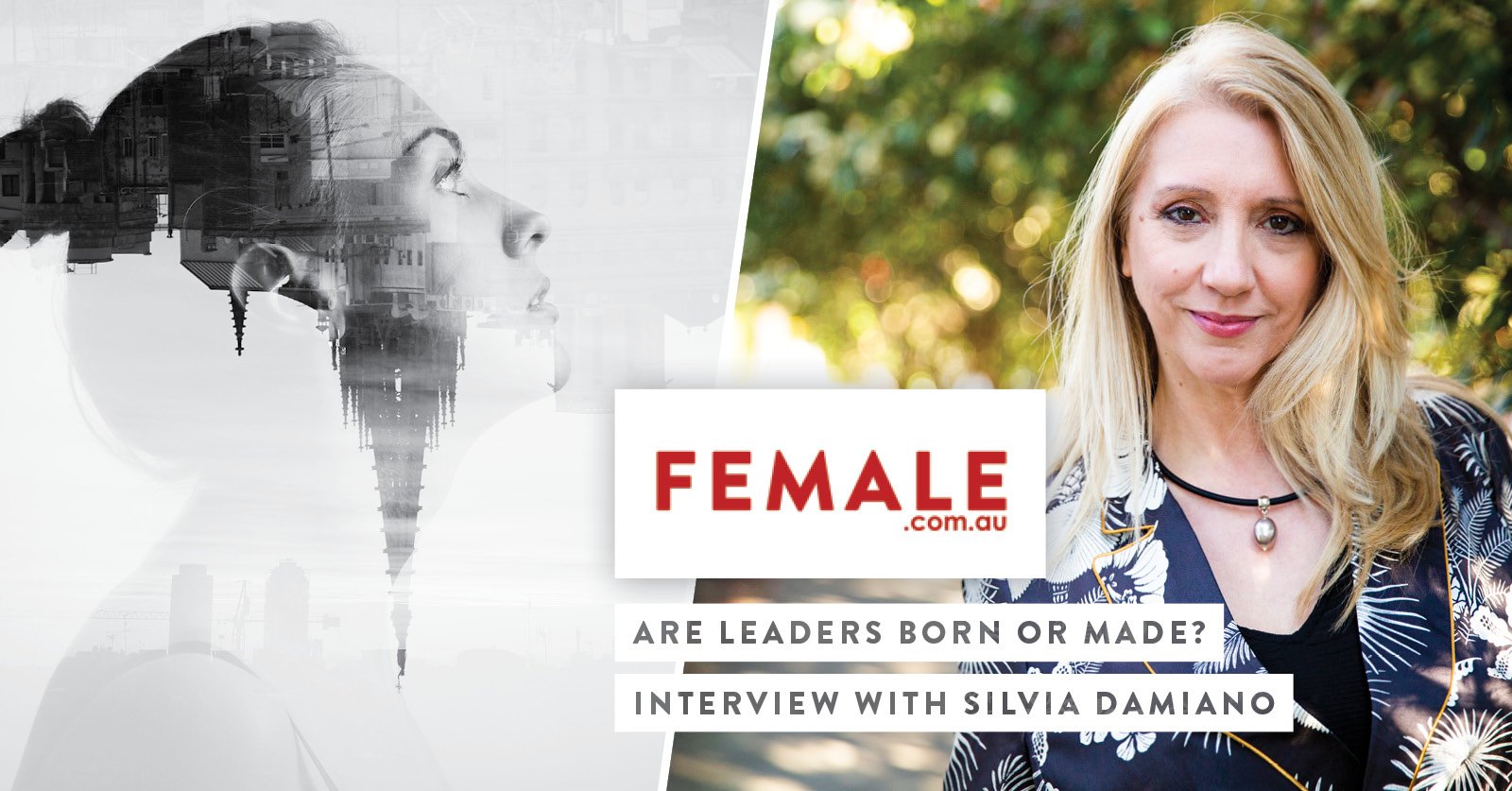Empowering Leaders Through Personal Growth with Gail Eaton-Briggs
Gail Eaton-Briggs is a leader with a deep passion for developing others. As the Brain-Friendly Leadership Certification Hobart Master Trainer for the About My Brain Institute, she brings decades of experience in leadership development, a keen understanding of human potential and a strong belief in the power of self-leadership.
Her journey into leadership wasn’t just a professional choice, it was shaped by personal experiences that fuelled her desire to help people step into their own power. From working with early childhood educators to guiding corporate leaders, Gail’s work is all about creating meaningful, lasting transformation.
I had the pleasure of sitting down with Gail to learn more about her path into leadership development, the moments that shaped her career and why she believes the i4 Neuroleader™ Methodology is a game-changer for individuals, organisations and communities.
Here’s what she shared:
What Motivated You to Work in Leadership Development?
I’ve always been deeply interested in people and passionate about seeing them thrive. However, over the years, I’ve witnessed too many talented individuals being held back by poor leadership in the workplace. That frustration became a driving force for me. I believe that leadership isn’t just about leading others; it starts with leading oneself.
My work is rooted in developing leaders at all levels: helping established leaders grow while also empowering individuals to recognise their own leadership potential. Whether they step into formal leadership roles or simply take charge of their own growth and decisions, leadership is a journey that begins within.
In every role I’ve held, there has always been an element of people development, and I’ve naturally gravitated toward that aspect. It’s what excites me most, helping people unlock their potential, navigate challenges and step into their own power as leaders.
Can You Share a Life Story That Inspired Your Belief in Personal Leadership?
About 20 years ago, I had the opportunity to participate in a year-long leadership development program, an experience that profoundly shaped my belief in personal leadership. The program was intense, but I was fortunate to be paired with an incredible coach who guided me through the process.
One of the most transformative aspects was setting long-term goals. Through deep reflection and personal coaching, I gained clarity, confidence and a renewed sense of direction. The insights I uncovered during that year didn’t just impact me at the time, they set me on a path of continuous growth, with goals that extended far beyond the program itself.
I’ll always be grateful to my employer for investing in my development because it reinforced a truth I now live by: when you help people grow personally, you also help them grow professionally. That company undoubtedly got the best version of me as a result and it cemented my belief that personal leadership is the foundation for all great leadership.
How Does Leadership Development Improve Organisations and Society?
Leadership development is essential for organisations to build and sustain strong relationships, both internally among staff and externally with clients, suppliers and stakeholders. Effective leadership fosters a positive culture, improves communication and enhances collaboration, all of which contribute to long-term success.
The same principles apply to society as a whole. We need people to develop the confidence to step up, lead with purpose and positively influence those around them, whether in the workplace, their communities or at home.
Even the best leaders must continuously evolve because the world around them is constantly changing. Leadership isn’t static; it’s shaped by both personal and professional circumstances, as well as external environments. Without ongoing development, individuals risk stagnation, burnout and diminished effectiveness. Investing in leadership growth ensures that both organisations and society remain adaptable, resilient and capable of thriving in an ever-changing landscape.
What Inspired You to Become a Master Trainer for the About My Brain Institute?
I was inspired to become a Master Trainer for the About My Brain Institute after attending the Retreat in Bali. Having been an avid follower of the i4 Neuroleader™ Methodology for many years and applying it with a wide range of individuals, I already believed in its power. However, my experience at the retreat deepened that belief.
Over five immersive days, every aspect of the theory and practical activities resonated deeply with me. I felt a strong connection to the methodology and its potential to transform both individuals and organisations. That experience reinforced my desire to share it with more people. (Read Gail's Bali article here.)
Becoming a Master Trainer allows me to do exactly that; empowering others to train their teams and integrate the i4 Neuroleader™ Model into their workplaces. By making this methodology more accessible, we’re not just enhancing leadership development; we’re creating a ripple effect that benefits individuals, organisations and communities alike.
How Does the i4 Neuroleader™ Methodology Stand Out in Leadership Development?
The i4 Neuroleader™ Methodology stands out in leadership development because of its uniquely gentle yet powerful approach. I use the word gentle in the most positive sense; this framework encourages growth without overwhelming participants.
Many of my clients have initially been apprehensive, particularly about the 360-degree feedback process or their ability to grasp the framework. However, once they engage with it, their fears quickly fade. The model is designed to be intuitive, accessible and deeply impactful.
One of the things I love most about i4 is its well-structured, visually engaging resources. The bright colours, clear layout and easy-to-follow content make learning both inviting and effective. The online course is particularly suited for busy professionals, as it delivers content in digestible chunks, through short videos, blogs and simple written activities, making it achievable without feeling like a burden.
What truly sets i4 apart is its ability to make leadership development both accessible and impactful. It strikes the perfect balance between simplicity and depth, ensuring that individuals and organisations experience meaningful, lasting transformation without unnecessary complexity.
Can You Describe Some of Your Clients and How You’ve Helped Them?
I have used the i4 Neuroleader™ Model with around 100 professionals in the early education and care sector and one of the most striking patterns I’ve observed is the high level of self-doubt and low confidence among these educators.
By analysing their results against the global benchmarks developed by About my Brain, I’ve been able to advocate for greater support within the sector, both to help individuals build their confidence and to encourage leaders to create environments that nurture their teams more effectively.
This is especially important given the critical role early childhood educators play in shaping the youngest members of our community. Their ability to lead with confidence directly impacts the children they care for, making leadership development in this sector not just beneficial but essential.
One of the most rewarding aspects of my work is debriefing individuals after their 360 assessments. While many participants initially feel nervous, especially about receiving feedback from others, they ultimately express gratitude for the insights gained. The opportunity to access targeted resources and strategies makes a tangible difference in their professional and personal growth.
In some cases, the 360 process has been a turning point for individuals, leading them to recognise that their current work environment isn’t conducive to their growth. When this happens, I encourage them to take a proactive approach in choosing their next role, essentially “interviewing” potential employers.
While this doesn’t have to be a formal process, it’s about ensuring that their future leaders align with the values and leadership principles they’ve come to understand through the i4 Neuroleader™ Model. Once someone has developed a deeper awareness of their own potential, they owe it to themselves to work in an environment that nurtures, rather than stifles, that growth.
What Are Your Expectations When Applying the i4 Neuroleader™ Model to Create Brain-Friendly Cultures?
I love helping people develop action plans, but what I find even more rewarding is when they engage in ongoing coaching with me. This not only reinforces their commitment but also provides a layer of accountability that helps turn their plans into real progress.
I also appreciate that the About my Brain Institute continuously seeks out the latest research, ensuring that what I share with my clients is always current and relevant. This allows me to honour their time and trust by offering insights that are fresh, evidence-based and impactful, rather than outdated concepts that no longer serve them.
It was a pleasure speaking with Gail Eaton-Briggs and gaining insight into her leadership philosophy and the impact she is making. Her dedication to developing leaders at all levels is truly inspiring and I can’t wait to see how her journey unfolds.
Join Gail at our upcoming Brain-Friendly Leadership Certification in Hobart👇
🌎 This program is also taking place in:
-
New York with Emily Juricek
-
Brisbane with Angella Clarke-Jervoise
-
Mexico City with Ricardo Gonzalez Escobar
-
Bangkok with Ruttanun Klewpatinond
-
Johannesburg & Cape Town with Dineshrie Pillay
- i4 Neuroleader (353)
- Leadership & Culture (336)
- Brain Health & Wellbeing (206)
- Innovation (97)
- Performance (85)
- Our News (79)
- Collaboration (68)
- Agility (53)
- Practitioner Stories (44)
- In The Press (36)
- Make Me A Leader (33)
- Balance (31)
- Integration (30)
- Imagination (29)
- Awareness (23)
- Brain-Friendly Channel (22)
- Brain-Friendly Leadership (22)
- Communication (22)
- Curiosity (21)
- Inspiration (19)
- Intuition (19)
- Attitude (17)
- Courage (16)
- Adaptability (14)
- Case Studies (14)
- Drive (14)
- Generosity (13)
- Ethics (9)
- Mental Readiness (9)
- Influence (8)
- Retreat (8)
- Brain-Friendly Leadership (1)
- Oracle Cards (1)
- 1 November 2025 (2)
- 1 September 2025 (3)
- 1 August 2025 (5)
- 1 July 2025 (5)
- 1 June 2025 (2)
- 1 April 2025 (1)
- 1 March 2025 (8)
- 1 February 2025 (3)
- 1 September 2024 (4)
- 1 July 2024 (2)
- 1 June 2024 (6)
- 1 May 2024 (2)
- 1 April 2024 (3)
- 1 March 2024 (1)
- 1 November 2023 (1)
- 1 August 2023 (1)
- 1 July 2023 (2)
- 1 June 2023 (2)
- 1 May 2023 (4)
- 1 April 2023 (2)
- 1 March 2023 (7)
- 1 February 2023 (4)
- 1 January 2023 (1)
- 1 September 2022 (1)
- 1 May 2022 (3)
- 1 April 2022 (1)
- 1 March 2022 (5)
- 1 February 2022 (4)
- 1 January 2022 (4)
- 1 December 2021 (2)
- 1 November 2021 (4)
- 1 October 2021 (3)
- 1 September 2021 (6)
- 1 August 2021 (1)
- 1 April 2021 (1)
- 1 December 2020 (2)
- 1 November 2020 (1)
- 1 September 2020 (1)
- 1 August 2020 (1)
- 1 July 2020 (3)
- 1 June 2020 (4)
- 1 May 2020 (3)
- 1 April 2020 (4)
- 1 March 2020 (6)
- 1 February 2020 (4)
- 1 January 2020 (2)
- 1 December 2019 (3)
- 1 November 2019 (3)
- 1 October 2019 (5)
- 1 September 2019 (4)
- 1 August 2019 (4)
- 1 July 2019 (4)
- 1 June 2019 (5)
- 1 May 2019 (9)
- 1 April 2019 (9)
- 1 March 2019 (8)
- 1 February 2019 (7)
- 1 January 2019 (8)
- 1 December 2018 (5)
- 1 November 2018 (10)
- 1 October 2018 (16)
- 1 September 2018 (9)
- 1 August 2018 (10)
- 1 July 2018 (9)
- 1 June 2018 (8)
- 1 May 2018 (9)
- 1 April 2018 (9)
- 1 March 2018 (9)
- 1 February 2018 (8)
- 1 January 2018 (8)
- 1 December 2017 (6)
- 1 November 2017 (9)
- 1 October 2017 (9)
- 1 September 2017 (8)
- 1 August 2017 (10)
- 1 July 2017 (8)
- 1 June 2017 (8)
- 1 May 2017 (9)
- 1 April 2017 (8)
- 1 March 2017 (6)
- 1 January 2017 (3)
- 1 December 2016 (4)
- 1 November 2016 (5)
- 1 October 2016 (4)
- 1 September 2016 (2)
- 1 August 2016 (4)
- 1 July 2016 (4)
- 1 June 2016 (2)
- 1 May 2016 (3)
- 1 April 2016 (3)
- 1 March 2016 (7)
- 1 February 2016 (2)
- 1 January 2016 (5)
- 1 December 2015 (2)
- 1 November 2015 (2)
- 1 October 2015 (4)
- 1 September 2015 (2)
- 1 August 2015 (2)
- 1 July 2015 (1)
- 1 June 2015 (3)
- 1 May 2015 (4)
- 1 April 2015 (5)
- 1 March 2015 (3)
- 1 February 2015 (3)
- 1 January 2015 (3)
- 1 December 2014 (3)
- 1 November 2014 (3)
- 1 October 2014 (3)
- 1 September 2014 (5)
- 1 August 2014 (4)
- 1 July 2014 (5)
- 1 June 2014 (3)
- 1 May 2014 (1)
- 1 March 2014 (1)
- 1 December 2013 (2)
- 1 November 2013 (1)
- 1 July 2013 (1)
- 1 June 2013 (1)
- 1 May 2013 (3)
- 1 April 2013 (1)
- 1 March 2013 (2)
- 1 February 2013 (1)
- 1 January 2013 (2)
- 1 November 2012 (1)
- 1 October 2012 (1)
- 1 September 2012 (1)
- 1 August 2012 (2)
- 1 July 2012 (1)
- 1 June 2012 (1)
- 1 May 2012 (2)
- 1 April 2012 (1)
- 1 February 2012 (1)
- 1 January 2012 (1)
- 1 November 2011 (1)
- 1 October 2011 (3)
- 1 September 2011 (2)
- 1 July 2011 (1)
- 1 June 2011 (1)
- 1 May 2011 (1)
- 1 April 2011 (1)
- 1 March 2011 (1)
- 1 February 2011 (2)
- 1 January 2011 (4)
- 1 December 2010 (4)
- 1 November 2010 (3)
- 1 October 2010 (5)
- 1 September 2010 (4)
- 1 August 2010 (4)
- 1 July 2010 (3)
- 1 June 2010 (4)
- 1 May 2010 (7)
- 1 April 2010 (5)
Subscribe by email
You May Also Like
These Related Stories

Unlocking Leadership Through Communication with Dineshrie Pillay

Trusting The Unknown: A Life-Changing Experience







No Comments Yet
Let us know what you think